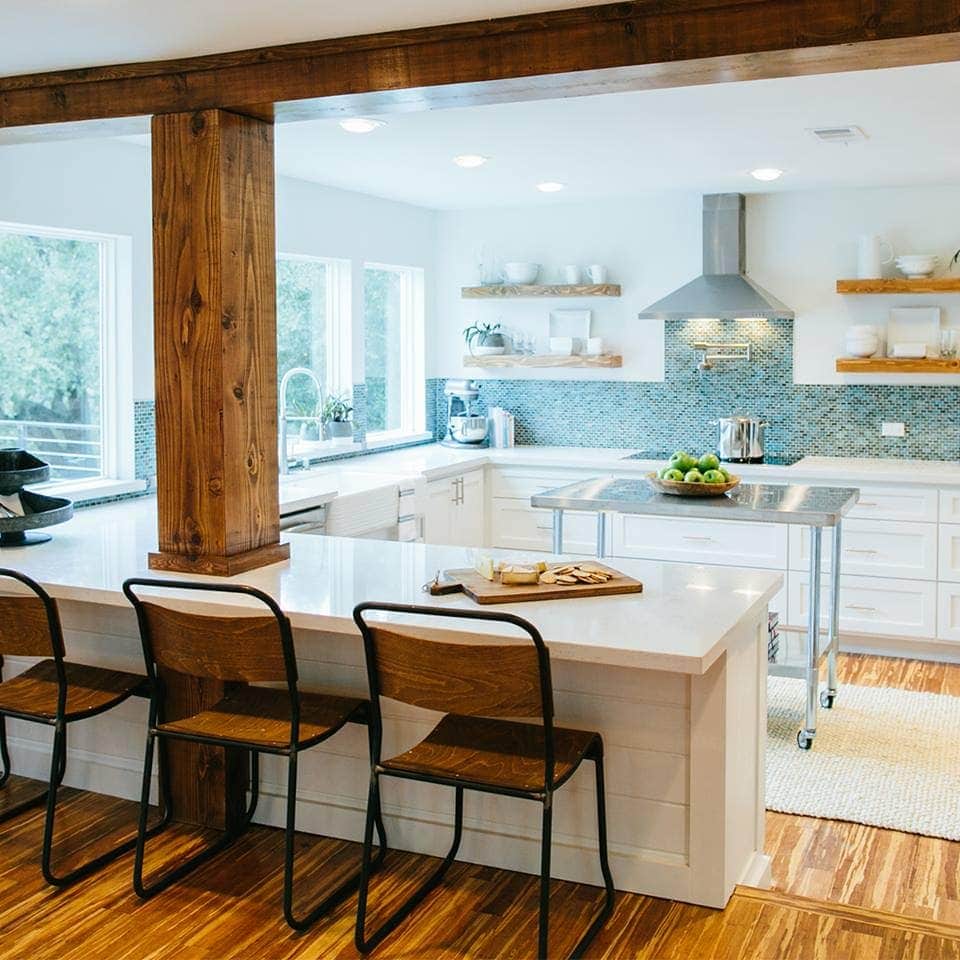Fixer Upper: The Ultimate Guide To Transforming Your Home
Fixer upper has become a popular trend among homeowners and real estate enthusiasts alike. Whether you're looking to renovate your current home or invest in a property that needs some TLC, understanding the process of fixer upper projects is essential. This guide will walk you through everything you need to know about fixer upper properties, from finding the right property to executing a successful renovation.
Renovating a fixer upper can be an exciting journey, offering the opportunity to create your dream home while potentially increasing its market value. However, it’s important to approach this process with careful planning and consideration. This article will provide you with comprehensive insights into the world of fixer upper projects, ensuring you're well-equipped to make informed decisions.
Whether you're a first-time homeowner or a seasoned real estate investor, understanding the nuances of fixer upper properties can help you avoid costly mistakes. Let’s dive into the details and explore how you can turn your vision into reality.
Read also:Is Guy Fieri A Trump Supporter Exploring The Chefs Political Views And Stance
Table of Contents
- What is a Fixer Upper?
- Benefits of Fixer Upper Properties
- Challenges in Fixer Upper Projects
- Finding the Right Fixer Upper Property
- Budgeting for Renovation
- Renovation Tips for Fixer Upper Projects
- Financing Options for Fixer Upper Projects
- Working with Professionals
- Increasing Property Value
- Selling a Fixer Upper Property
What is a Fixer Upper?
A fixer upper refers to a property that requires significant renovations or repairs to reach its full potential. These properties are often sold below market value, making them attractive to buyers who are willing to invest time and effort into improving them. Fixer upper homes can range from those needing minor cosmetic updates to complete overhauls involving structural repairs.
Types of Fixer Upper Properties
Fixer upper properties can be categorized into different types based on the extent of work required:
- Cosmetic Fixer Upper: These properties need updates such as painting, new flooring, or updated fixtures.
- Structural Fixer Upper: These homes require more extensive work, including repairs to the foundation, roof, or electrical systems.
- Historic Fixer Upper: Older homes that need restoration while preserving their historic charm.
Understanding the type of fixer upper property you're considering is crucial in determining the scope of work and associated costs.
Benefits of Fixer Upper Properties
Purchasing a fixer upper property offers numerous advantages, especially for those with a vision for home improvement. Here are some key benefits:
Cost Savings
Fixer upper homes are typically priced lower than move-in-ready properties. This allows buyers to purchase in desirable locations that might otherwise be out of reach financially.
Personalization
One of the most appealing aspects of a fixer upper is the ability to customize the space according to your preferences. From choosing paint colors to designing layouts, you have the freedom to create a home that truly reflects your style.
Read also:Comprehensive Guide To Sioux City Police Log Insights Updates And Importance
Investment Potential
By renovating a fixer upper, you can significantly increase its market value, making it a smart investment choice. Proper renovations can lead to substantial returns when the property is sold or rented.
Challenges in Fixer Upper Projects
While fixer upper projects offer many benefits, they also come with their own set of challenges. It's important to be aware of these potential obstacles before diving into a renovation project.
Unexpected Costs
Renovations often uncover hidden issues that can escalate costs. From mold to plumbing problems, it's essential to budget for unexpected expenses when tackling a fixer upper.
Time Commitment
Fixer upper projects can be time-consuming. Depending on the extent of renovations, the process may take months or even years to complete. Patience and proper planning are key to avoiding delays.
DIY vs. Professional Help
Deciding whether to tackle renovations yourself or hire professionals is another challenge. While DIY projects can save money, they may also lead to mistakes that cost more in the long run. Weighing the pros and cons is essential in making the right decision.
Finding the Right Fixer Upper Property
Choosing the right fixer upper property is the first step in a successful renovation project. Here are some tips to help you find the perfect property:
Location
Location is one of the most important factors to consider when purchasing a fixer upper. Look for properties in areas with growing demand and good school districts, as these can enhance property value.
Inspect the Property
Before making an offer, thoroughly inspect the property for any potential issues. Hiring a professional inspector can provide valuable insights into the condition of the home and help you estimate renovation costs.
Set Realistic Expectations
Understand the scope of work required and set realistic expectations for the time and budget needed to complete the project. This will help you avoid surprises down the road.
Budgeting for Renovation
Proper budgeting is crucial for any fixer upper project. Here are some tips to help you create an effective budget:
Estimate Costs
Break down your renovation into specific tasks and estimate the costs for each. Include materials, labor, permits, and contingency funds for unexpected expenses.
Prioritize Renovations
Identify which areas of the home need immediate attention and prioritize those renovations. This will help you allocate your budget more effectively and ensure the most critical work is done first.
Stick to Your Budget
Once you've created your budget, stick to it as closely as possible. Avoid unnecessary upgrades or changes that could increase costs and derail your project.
Renovation Tips for Fixer Upper Projects
Here are some practical tips to help you successfully renovate your fixer upper property:
Plan Ahead
Develop a detailed plan outlining the scope of work, timeline, and budget. This will serve as a roadmap for your renovation project and help keep everything on track.
Choose Quality Materials
Investing in quality materials can enhance the durability and appeal of your fixer upper. While it may cost more upfront, it can save you money in the long run by reducing the need for frequent repairs.
Stay Organized
Keep all documents, receipts, and contracts organized throughout the renovation process. This will make it easier to track expenses and ensure everything is accounted for.
Financing Options for Fixer Upper Projects
Funding a fixer upper project can be challenging, but there are several financing options available:
Home Equity Loans
If you already own a home, a home equity loan can provide the funds needed for your fixer upper project. This option allows you to borrow against the equity in your current home.
FHA 203(k) Loans
FHA 203(k) loans are specifically designed for fixer upper projects. They allow borrowers to finance both the purchase of the property and the cost of renovations in one loan.
Personal Loans
For smaller projects, personal loans can be a viable option. They typically offer lower interest rates and flexible repayment terms.
Working with Professionals
Hiring the right professionals can make a significant difference in the success of your fixer upper project. Here are some tips for finding and working with professionals:
Research and Interview
Take the time to research and interview potential contractors, architects, and designers. Check their credentials, ask for references, and review past projects to ensure they meet your standards.
Establish Clear Communication
Clear communication is key to a successful working relationship. Set expectations upfront and maintain open lines of communication throughout the project.
Set Realistic Deadlines
Work with your professionals to set realistic deadlines for each phase of the renovation. This will help keep the project on schedule and prevent delays.
Increasing Property Value
One of the primary goals of a fixer upper project is to increase the property's value. Here are some strategies to achieve this:
Focus on High-Impact Areas
Renovations in high-impact areas such as the kitchen and bathrooms can significantly boost property value. Updating appliances, fixtures, and cabinetry can make a big difference.
Curb Appeal
Improving curb appeal can enhance the first impression of your property. Consider landscaping, painting the exterior, or adding new siding to make your home more visually appealing.
Energy Efficiency
Investing in energy-efficient upgrades, such as insulation, windows, and HVAC systems, can increase property value while also reducing utility costs.
Selling a Fixer Upper Property
Once your fixer upper project is complete, it's time to sell the property. Here are some tips to help you get the best price:
Stage the Home
Staging your home can make it more appealing to potential buyers. Arrange furniture to create a welcoming atmosphere and highlight the home's best features.
Marketing Strategy
Develop a strong marketing strategy to reach a wide audience. Use professional photos, virtual tours, and social media to showcase your property.
Set a Competitive Price
Research comparable properties in the area to set a competitive price. Pricing your home too high can deter buyers, while pricing it too low can leave money on the table.
Kesimpulan
Fixer upper projects offer a rewarding opportunity to transform a property while potentially increasing its value. By understanding the benefits, challenges, and best practices involved, you can successfully navigate the process and achieve your goals.
We encourage you to take action by exploring fixer upper properties in your area. Share your thoughts and experiences in the comments below, and don't forget to check out our other articles for more real estate insights!
Data and insights in this article are supported by reputable sources such as the National Association of Realtors and the U.S. Department of Housing and Urban Development.


